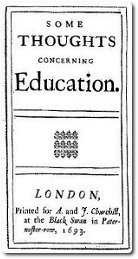John Keats, selected poems Contents
- Social and political context
- Religious and philosophical context
- Literary context
- Bright Star! Would I were steadfast as thou
- The Eve of St Agnes
- ‘Hush, hush! tread softly! hush, hush, my dear!’
- Isabella: or The Pot of Basil
- La Belle Dame Sans Merci
- Lamia
- Lines to Fanny (‘What can I do to drive away’)
- O Solitude, if I must with thee dwell
- Ode on a Grecian Urn
- Ode on Indolence
- Ode to a Nightingale
- Ode to Autumn
- Ode to Melancholy
- Ode to Psyche
- On First Looking Into Chapman’s Homer
- On Seeing the Elgin Marbles
- On the Sea
- Sleep and Poetry
- Time’s sea hath been five years at its slow ebb
- To Ailsa Rock
- To Leigh Hunt
- To Mrs Reynolds’s Cat
- To My Brothers
- To Sleep
- When I have fears that I may cease to be
Opportunity and constraint
Transport developments and travel
The requirements of war, as well as the development of the toll road system during the later eighteenth century, resulted in improved transport and roads, which made travel around the country and in Europe easier and more appealing.
As opportunities for travel increased, a taste for rural scenery began to develop, encouraged by the work of painters who represented scenes of nature, preferably both wild and remote. Keats followed the lead of other Romantic poets when he travelled to the Lake District in 1818 and then Scotland.
Gender inequality
As a young man, Keats fell desperately in love with Fanny Brawne, the family friend of his neighbour. The relationship caused him much anguish for two reasons.
Education
 Fanny seems not to have developed the depth of thought and sensibility of Keats. At the beginning of the nineteenth century, the education of women was undervalued. Girls were usually taught at home by their mother, as generally it was only boys who went to school. There was an emphasis on girls' accomplishments in music, language and the arts, with the goal of making young women more marriageable.
Fanny seems not to have developed the depth of thought and sensibility of Keats. At the beginning of the nineteenth century, the education of women was undervalued. Girls were usually taught at home by their mother, as generally it was only boys who went to school. There was an emphasis on girls' accomplishments in music, language and the arts, with the goal of making young women more marriageable. Girls were urged to abide by the precepts of conduct books for women such as:
- John Gregory's A Father's Legacy to his Daughters (1774)
- Thomas Gisborne's An Enquiry into the Duties of the Female Sex (1797)
- Jane West's Letters to a Young Lady (1806).
These encouraged young women to be aware of their duties, obligations and conduct. It was expected that females would be physically demure, emotionally passive and focus on their physical appearance rather than their intelligence.
Marriage
Secondly, Keats could not afford to marry Fanny. Women were almost totally economically dependent in the early 1800s, so everything rested on the financial means of a prospective husband. Marrying well was generally a woman's sole hope of financial and legal security:
- A single woman legally belonged to her father and was financially dependent on him
- When married, a woman's dependence transferred to her husband
- If a woman was wealthy, her husband had to be selected (usually by her father) with caution as her money would become his after the marriage.
Keats knew that his income was not considered adequate to support Fanny in the style to which she was accustomed.